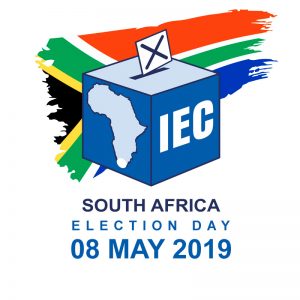Statement: R2K congratulates South Africa on delivering on a peaceful #Election2019!

The Right2Know Campaign congratulates South Africa on delivering on a peaceful #Election2019. In the 25th year of our democracy, millions of South Africans registered their trust in the country by standing in queues, many braving the inclement winter weather to cast their vote for the party of their choice. Generally, there was a celebratory atmosphere, in spite of the delays and technical glitches, as voters turned up to exercise a right to vote that had been denied them before 1994. In the end, nearly 15,5 million voters across 22,925 voting stations countrywide cast their ballots.
Elections in a representative democracy is an exercise in trust. Trust in the political leadership being elected and trust in the process to have them elected. For this reason, the integrity of the election and the process of getting to a result is crucial.
It is, therefore, unsettling to realise that the system might have been compromised. By other voters; some of whom might have removed the not-so-indelible ink from their fingers and voted a second or third time. Possibly also by political parties desperate to make it into the legislatures. To date, 24 people have been arrested on allegations of electoral fraud.
These incidents highlighted a vulnerability in the system – the inability to identify when someone has voted already. The marking of a voter through the use of indelible ink – a system that has been used over the past 25 years – was shown to be woefully inadequate. We note and support the calls for the process to be modernised; nevertheless, we would caution that any electronic recording of a voter’s vote be done subject to adequate safeguards that would protect the personal information of the voter and the vote. This includes the immediate implementation of the regulatory and institutional framework within the POPI Act.
We also note the inadequate contingencies implemented by the IEC to deal with voters exercising their right to vote wherever they found themselves in the province in which they reside. While this put a strain on the planning and apportioning of ballot papers across voting stations, the delays in getting materials to voters and the number of voting stations that were originally supplied with inadequate voting materials is not acceptable.
We appreciate the enormity of the task of managing an election for nearly 27 million registered voters, and while we commend the effort made by the 220 000 temporary and permanent IEC staff, more could have been done to prepare the temporary staff for their tasks. On the day, we observed many (mainly new) staff being uncertain of the process and of their role. While this did not have a significant impact on the ability of voters to cast their vote, it did cause confusion as voters were sent from pillar to post or left in frustration.
While the election day itself was relatively free of the violence that so often marks other elections on the continent, in at least one case an IFP member was shot and killed at a voting station in Kwazulu-Natal. The run-up to the election process itself faced many challenges. We note the numerous cases of utterances by a range of political parties on the campaign trail which bordered on hate speech; we note in particular the case currently before the Electoral Court involving an attack on a journalist on social media that was violent, sexist and would qualify as an attempt to intimidate the journalist or as an example of hate speech. We note the many cases where the IEC was prevented from doing its job or setting up its stations; the sporadic cases of clashes between supporters of rival political parties and the physical altercations that occurred from too little debate. We also note that this election revealed the lowest voter turnout of any election – 65,99%. This might reflect a loss of overall confidence in the formal political process.
The integrity of the election rests upon the trust of the electorate that they will be allowed to make an informed choice and that the political parties will submit to the free and fair political competition without trying to consciously subvert and undermine the process or the system. It is clear that we will have to look again at the system – not just to fix the voting system, but also to review the basis for getting into Parliament. The calls for direct election of the President (and the Premiers) and the right to recall elected public officials have grown stronger in recent days. We are extremely concerned that both the majority party in Parliament, the ANC, and the official opposition, the DA, have been quoted as wanting to review the recently enacted Political Party Funding Act. This legislation will ensure greater transparency over where political parties get their private funding from. The passing of the legislation late last year was hailed as a big step forward for transparency – and therefore integrity – in the political process. Efforts to reverse this must be resisted.
We have come through our 6th national and provincial elections peacefully; the election has been declared free and fair …. And just a little bit broken. The hard work starts now to fix the system, to make the necessary changes before the Local Government Elections in 2021, and to hold our political leaders accountable to the promises they have made to us.
#OngaziMagazi #ParticipatoryDemocracy #Elections2019
For more information contact:
Ghalib Galant, R2K Deputy National Coordinator: 084 959 1912
Thabo Maile, R2K NWG Member: 078 119 4257
Busi Mtabane, R2K National Communicator: 083 329 7844


